Can I Eat Beef Liver Weekly
We include products in articles we think are useful for our readers. If you buy products or services through links on our website, we may earn a small commission.
Beef Liver Nutrition and Benefits
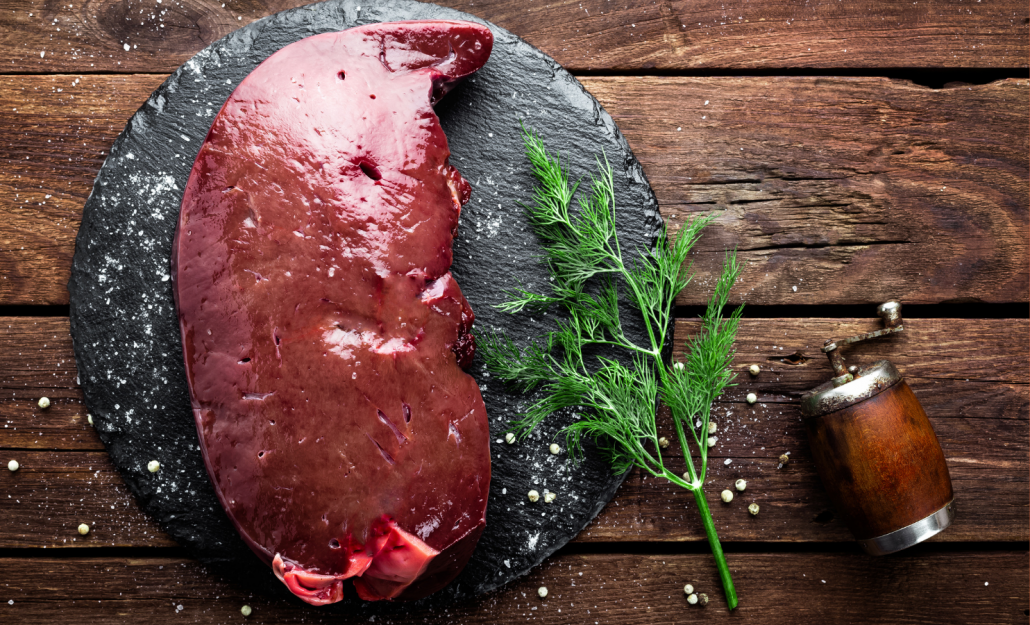
Table of Contents
- Beef Liver Nutrition
- Health Benefits of Beef Liver
- Potential Dangers of Eating Beef Liver
- How Often Should You Eat Liver?
- How to Cook Beef Liver for the Best Health Benefits
- Beef Liver: The Takeaway
You've probably heard the term superfood given as an accolade to kale, spinach, and blueberries for their seemingly unrivaled nutritional might. But did you ever stop to question those claims? Or to look at a comparison of nutritional benefits between, say, a hand full of blueberries and a sliver of beef liver?
Truth is, of all the so-called superfoods, beef liver reigns supreme. It's an absolute powerhouse of vitamins and minerals. While being low in carbs and high in protein.
Because of this unique macro and micronutrient combination, beef liver can promote overall health and wellness.
Though for many people new to a nose-to-tail way of eating, beef liver can feel intimidating.
In this article, we'll explore everything you need to know about beef liver and the benefits of incorporating it into your diet–whether fresh, or in a convenient supplement form.

Beef Liver Nutrition
Beef liver is a nutrient-dense, high-protein, and low-carb superfood. In fact, it is so loaded it's often referred to as nature's multivitamin. Looking at the nutritional profile, you can see why:
| Beef Liver: Raw | ||
| Based on 100 grams | ||
| Calories | 135 | |
| Fat | 3.6g | |
| Protein | 20.4g | |
| Net Carbs | 3.9g | |
| VITAMINS | %Daily Value | |
| Vitamin A Vitamin A IU Folate Niacin Riboflavin Thiamine Vitamin B6 Vitamin B12 Vitamin C Vitamin D Vitamin D Vitamin D3 Vitamin E Vitamin K | 4968μg 16898IU 290μg 13.2mg 2.8mg 0.2mg 1mg 59.3μg 1.3mg 1.2μg 49IU 1.2μg 0.4mg 3.1μg | 552% 870% 73% 66% 163% 13% 84% 2471% 3% 8% – – 2% 3% |
| MINERALS | ||
| Calcium Iron Magnesium Phosphorus Zinc Copper Manganese Selenium Choline | 5mg 4.9mg 18mg 387mg 4mg 9.8mg 0.3mg 39.7μg 333.3mg | 1% 62% 6% 39% 27% 488% 16% 57% 61% |
Check out the nutritional comparison between beef liver and other so-called superfoods:
| Daily Recommended Intake | Beef Liver (100g) | Kale (100g) | Spinach (100g) | Blueberries (100g) | |
| Vitamin A | Men: 3,000 IU Women: 2,300 IU Pregnant Women: 2,566 IU | 16,899 IU | 15,376 IU | 9,376 IU | 54.0 IU |
| Riboflavin (Vitamin B2) | Men: 1.3 mg Women: 1.1 mg | 2.8 mg | 0.1 mg | 0.2 mg | 0.0 mg |
| Niacin (Vitamin B3) | Men: 16 mg Women: 14 mg | 13.2 mg | 1 mg | 0.7 mg | 0.4 mg |
| Pantothenic Acid (Vitamin B5) | Adults: 5 mg | 7.2 mg | 0.1 mg | 0.1 mg | 0.1 mg |
| Vitamin B6 | Adults: 1.3 mg | 1.1 mg | 0.3 mg | 0.2 mg | 0.1 mg |
| Folate (Vitamin B9) | Adults: 400 mcg Pregnant Women: 600 mcg | 290 mcg | 29 mcg | 194 mcg | 6 mcg |
| Vitamin B12 | Adults: 2.4 mcg Pregnant women: 2.6 mcg | 59.3 mcg | 0.0 mcg | 0.0 mcg | 0.0 mcg |
| Calcium | Adults: 1,000 mg | 5 mg | 135 mg | 99 mg | 6 mg |
| Copper | Adults: 0.9 mg | 9.8 mg | 0.3 mg | 0.1 mg | 0.1 mg |
| Vitamin C | Men: 90 mg Women: 75 mg | 1.3 mg | 120 mg | 0.0 mg | 9.7 mg |
| Vitamin D | Adults: 600 IU | 16 IU | — | — | — |
| Vitamin E | Adults: 15 mg | 0.4 mg | — | 2 mg | 0.6 g |
| Iron | Men: 8 mg Women: 18 mg Pregnant women: 27 mg | 4.9 mg | 1.7 mg | 2.7 mg | 0.3 mg |
| Magnesium | Men: 400 mg Women: 310 mg | 18 mg | 34 mg | 174 mg | 6 mg |
| Phosphorous | Adults: 700 mg | 387 mg | 56 mg | 49 mg | 12 mg |
| Potassium | Men: 3,400 mg Women: 2,600 mg | 313 mg | 447 mg | 558 mg | 77 mg |
| Selenium | Adults: 55 mcg | 39.7 mcg | 0.9 mcg | 1 mcg | 0.1 mcg |
| Zinc | Men: 11 mg Women: 8 mg Pregnant women: 11 mg | 4 mg | 0.4 mg | 2.8 mg | 0.2 mg |
As you can see, beef liver exceeds these other so-called "superfoods" in almost every micronutrient including:
- Vitamin A
- Riboflavin (vitamin B2)
- Niacin (vitamin B3)
- Pantothenic acid (vitamin B5)
- Vitamin B6
- Folate (vitamin B9)
- Vitamin B12
- Copper
- Vitamin D
- Iron
- Phosphorous
- Selenium
- Zinc
Simply put, beef liver contains more vitamins and minerals than any other fruit or vegetable, often by many factors. A 100 gram serving of beef liver also contains 20.4 grams of protein, only 3.9 grams of carbs, and 3.6 grams of healthy fats.
Health Benefits of Beef Liver
Is beef liver good for you? The short answer is, are you kidding me?
Beef liver offers a wealth of benefits due to its broad and potent collection of vitamins and minerals. Let's dig a little deeper into the health benefits of beef liver below.
Promotes and Supports Energy
Feeling sluggish every day may be a sign that you lack essential micronutrients.
Beef liver is loaded with nutrients that have been shown to support energy, including :
- Vitamin B12
- Riboflavin (Vitamin B2)
- Niacin (Vitamin B3)
- Vitamin C
- Iron
- Magnesium
These micronutrients help your body turn the food you eat into usable energy. The B vitamins and iron also help your muscles and organs receive sufficient oxygen, supporting physical stamina and mental concentration.

Glowing Skin
It may help you look and feel younger. Beef liver contains the following vitamins and minerals that support and maintain skin health :
- Vitamin A
- Vitamin C
- Vitamin E
- Zinc
Vitamin A, also known as retinol, may lessen the appearance of aging by increasing skin vascularity, thickness, and firmness .
Vitamin C may also slow down skin-aging by reducing wrinkle depth. But most importantly, vitamin C is a natural antioxidant that protects your skin from damaging UV radiation. The protective benefits of vitamin C are most effective in combination with Vitamin E. Luckily, beef liver contains both of these vitamins .
Fertility
But making changes to your diet can support your path to pregnancy.
Beef liver contains vitamins and minerals that support reproduction, including :
- Vitamin A
- Vitamin B12
- Selenium
- Zinc
- Folate
Research shows that vitamin B12 may increase sperm count and motility . 5 Selenium and zinc may also improve your ability to conceive. Studies show that adding these vitamins to your diet may reduce the time to pregnancy. 6
Fetal Development
Beef liver may be a good source of vitamins and minerals that support healthy fetal development :
- Vitamin A
- Vitamin B12
- Copper
- Folate (Vitamin B9)
- Iron
- Zinc
A 100 gram serving of beef liver provides 18% of the recommended daily intake of iron for pregnant women :
Strong Bones
Beef liver contains the following vitamins and minerals that promote bone health :
- Vitamin D
- Magnesium
- Calcium
Heart Health
Beef liver contains the following micronutrients that support heart health :
- Potassium
- Niacin (vitamin B3)
- Magnesium
Research shows that potassium intake may lower your blood pressure.8
Brainpower
If you're looking for more cognitive power and sustained focus, adding beef liver to your diet may help.
Beef liver contains the following vitamins and minerals that may enhance cognitive performance :
- Selenium
- Copper
- Niacin (Vitamin B3)
- Iron
Research shows that selenium levels decrease as you get older . And this may cause declines in brain function.
Copper may also influence cognitive performance .
Niacin (vitamin B3) also plays a role in cognitive functioning . Deficiencies in this vitamin can impair memory.
Individuals with iron deficiencies may experience better cognitive performance after iron supplementation. Cognitive improvements involved the following areas 9 10.
- Attention
- Concentration
- Memory
Strength & Endurance
Magnesium is a mineral found in beef liver. Dietary intakes of magnesium may improve neurological and neuromuscular functioning including 11 12:
- Muscle strength
- Muscle power
- Muscle performance
- Cardiorespiratory endurance
The more you exercise, the more magnesium you need to support physical performance . Beef liver may be a good source of magnesium for athletes and active individuals.
Elevated Mood
Eating beef liver may also support your psychological health by offering an abundance of mood-boosting and stress-reducing vitamins and minerals like B vitamins, folate, and magnesium. 11 12 13
Eye Health
Eating beef liver may promote eye health . Beef liver contains extraordinary amounts of vitamin A, which is crucial for healthy vision.
Strong Immune System
Maintaining a strong immune system depends on many vitamins and minerals. Thankfully, beef liver offers an abundance of many immune-supporting compounds, including:
- Vitamin A
- Vitamin C
- Vitamin D
- Copper
- Zinc
Vitamin A enforces the mechanical barrier function of the skin and inner linings of the body, especially the intensities. 12 This prevents the passage of harmful pathogens into tissues and the bloodstream .
Vitamin C also boosts your immune response with its antioxidant properties. Vitamin C reduces tissue damage and oxidative stress by eliminating free radicals .14
Copper also provides cellular defense against free radicals. Lastly, the zinc in beef liver assists with wound healing 11 . In short, beef liver may keep you healthy and reduce your risk for infectious diseases.
Potential Dangers of Eating Beef Liver
Now that you're aware of the health benefits of beef liver, we'll also touch on the potential dangers of eating liver. Though these risks are low and easily avoided, they are worth mentioning.
Hepatitis E
Eating uncooked or undercooked beef liver may increase your risk of hepatitis E . Hepatitis E is an infection that can occur after consuming contaminated food. Symptoms of hepatitis E include:
- Fatigue
- Poor appetite
- Abdominal pain
- Nausea
- Jaundice (yellow skin and eyes)
This sounds scary. But hepatitis E is not common in the United States. You can avoid hepatitis E by practicing good hand hygiene and cooking beef liver to an internal temperature of 160 degrees Fahrenheit.
Food Poisoning
As with any food, food poisoning is a risk, but it is very low. You are more than twice as likely to get food poisoning from fruits and vegetables. Only 22% of food poisoning infections arise from meat and poultry .
You can prevent food poisoning by cooking liver to an internal temperature of 160 degrees Fahrenheit.
Vitamin A Toxicity
Vitamin A toxicity results from consuming excessive amounts of vitamin A. Symptoms of vitamin A toxicity may include :
- Nausea
- Vomiting
- Vertigo
- Blurry vision
Pregnant women who experience vitamin A toxicity may have an increased risk of birth defects. But vitamin A toxicity is rare. And it is most often caused by supplements rather than natural food sources.
Consuming more than 600,000 IU of vitamin A may lead to poisoning. You may also experience vitamin A poisoning if you regularly ingest more than 25,000 IU of vitamin A daily .
You can avoid vitamin A toxicity by being mindful of your beef liver consumption. A 100 gram serving of beef liver contains 16,899 IU of vitamin A. You can eat this daily without risks of vitamin A poisoning.
How Often Should You Eat Liver?
Children should consume beef liver no more than once weekly. But adults can eat beef liver more often .
You may experience greater benefits with more frequent consumption.
A 100 gram serving of beef liver surpasses the recommended daily intakes for the following micronutrients :
- Vitamin A
- Vitamin B12
- Riboflavin (vitamin B2)
- Copper
Beef liver also delivers over 50% of the daily recommended intakes for:
- Niacin (vitamin B3)
- Pantothenic acid (vitamin B5)
- Vitamin B6
- Folate (vitamin B9)
- Selenium
As you can see, beef liver packs a healthy punch of vitamins and minerals.
How to Cook Beef Liver for the Best Health Benefits
Take care to avoid raw or undercooked beef liver due to the risks of hepatitis E and food poisoning. Make sure to cook beef liver to an internal temperature of 160 degrees Fahrenheit.
Cooking beef liver also makes it easier to digest and improves the absorption of vitamins and minerals. Some cooking methods are better than others when it comes to your health.
Cook with heat-stable healthy fats such as butter, ghee, and tallow.
If you soak liver in milk before cooking, use full-fat milk. Your body needs fat for fuel, especially when you're on a ketogenic or carnivore diet.
Beef Liver: The Takeaway
Beef liver as one of nature's top superfoods. This designation is based on beef liver's robust nutritional profile and how it may promote and support physical, cognitive, and psychological wellbeing.
If you're compelled by the benefits of beef liver, but still intimidated when it comes to cooking and eating fresh liver, you can get all the nutrition in the convenience of a Doctor Kiltz Nutritional Solutions beef liver supplement.

To summarize, the benefits may include:
- All-day energy
- Anti-aging skin
- Fertility
- Fetal development
- Strong bones
- Heart health
- Brainpower
- Strength and endurance
- Elevated mood
- Eye health
- Strong immune system
These benefits are possible with minimal risks. You can avoid the dangers of eating liver by:
- Following the recommended dietary intakes
- Practicing good hand hygiene
- Using proper cooking methods
Combining beef liver with a ketogenic diet may increase its health benefits. Check out our free resource — Dr. Kiltz's Keto Cure — if you want to learn more about the healing effects of the ketogenic diet.
Article Sources
cameronclowboulat.blogspot.com
Source: https://www.doctorkiltz.com/beef-liver/
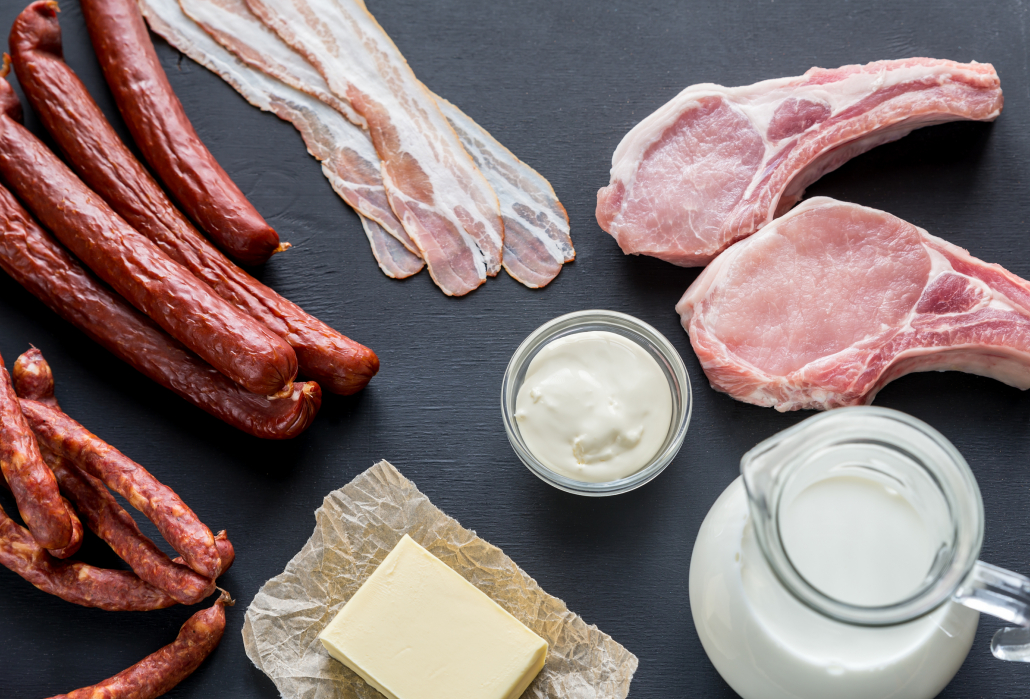
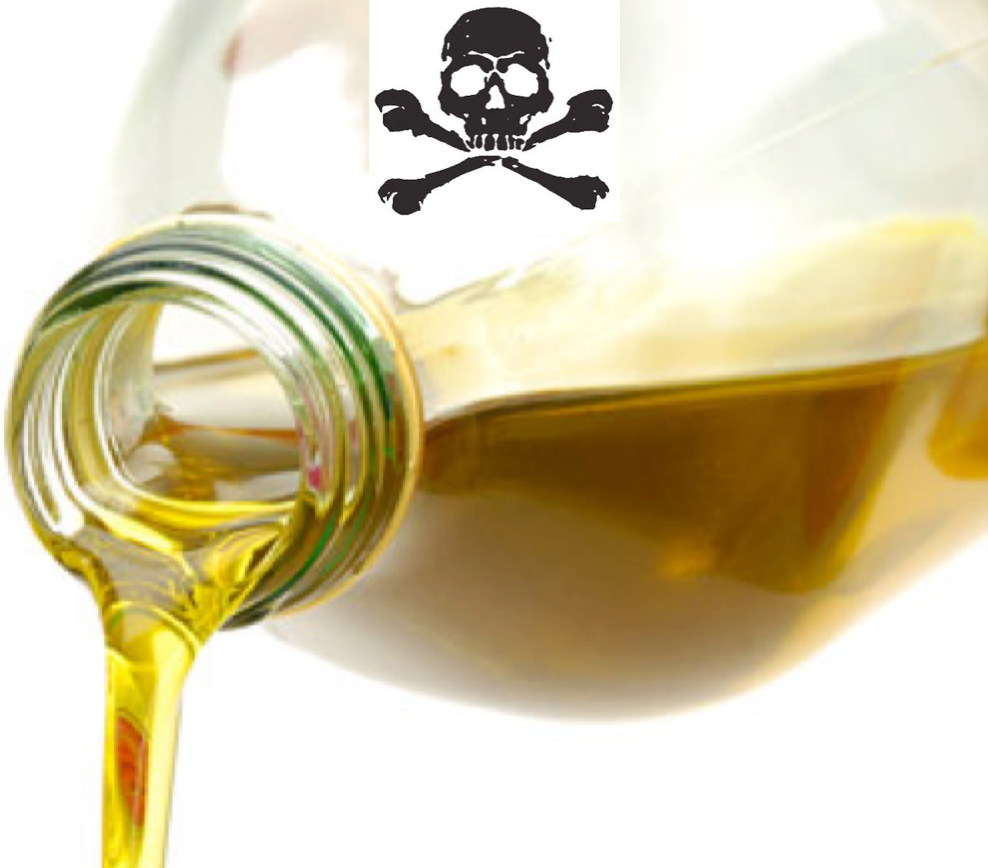
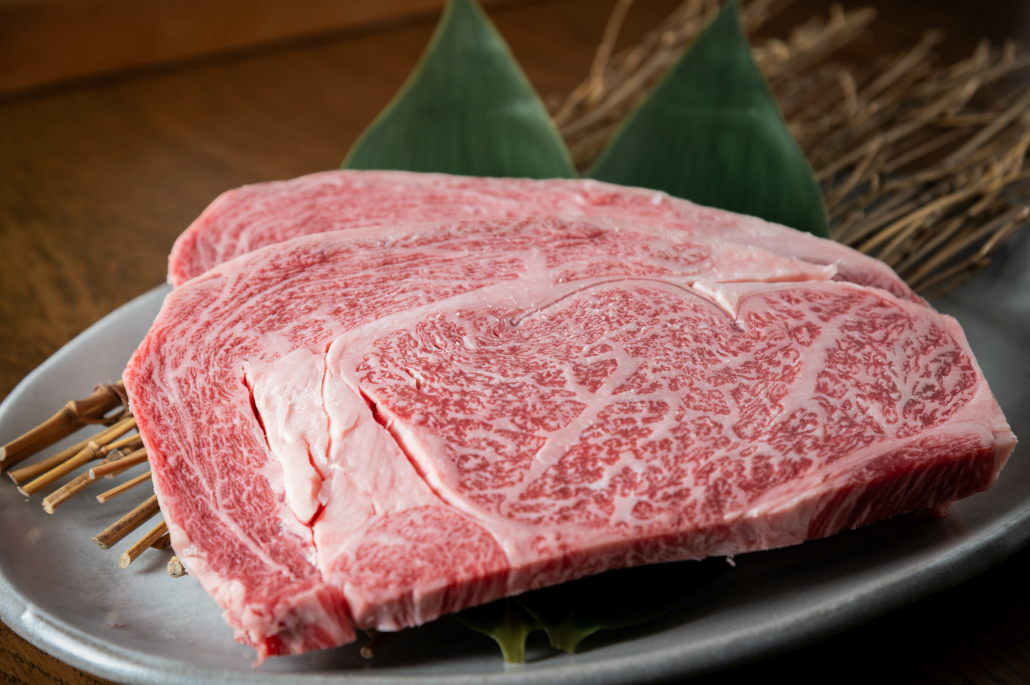
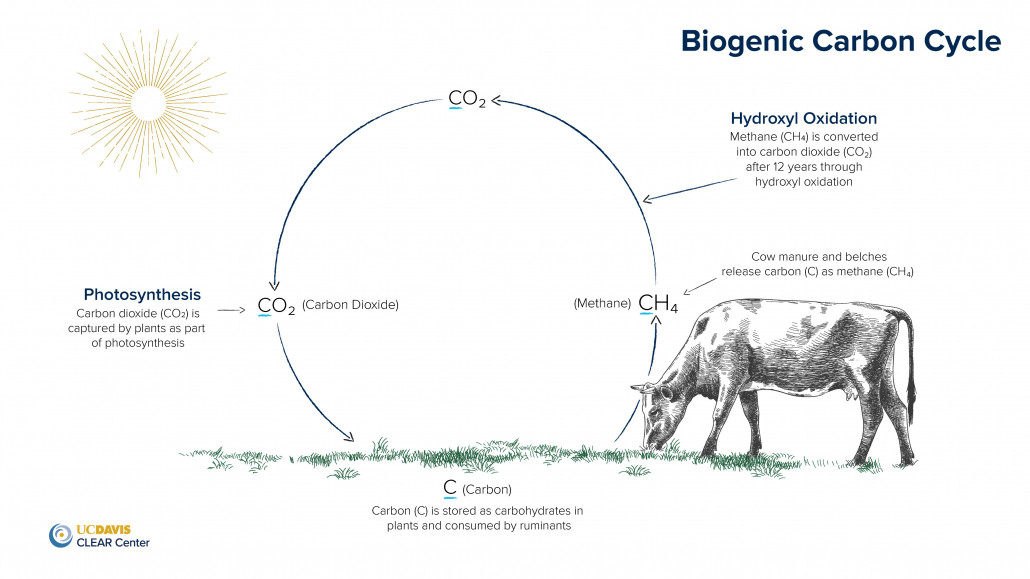
0 Response to "Can I Eat Beef Liver Weekly"
Post a Comment